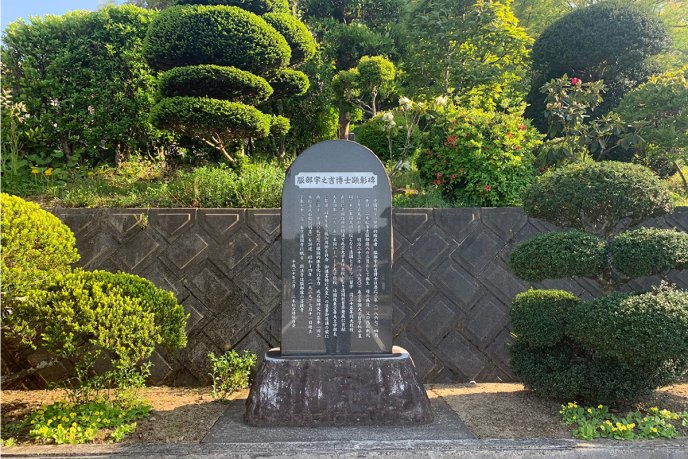La vidéo sera disponible prochainement.
Takahiro Nakajima est invité par l'assemblée du Collège de France sur proposition de la professeure Anne Cheng.
Résumé
The Organization of Philosophy as an Institution
Inoue Tetsujirō claimed to have introduced the now widely used distinction between Western and Eastern philosophy in his Congratulatory Address to the 25th-anniversary celebration of Religious Studies at the Faculty of Letters of Tokyo Imperial University in 1930.
When the University of Tokyo was founded in 1877, it reorganized Tokyo Kaisei School and established a Faculty of Letters. The faculty was divided into two departments: the first department included history, philosophy, and political science, while the second department covered Japanese and Chinese literature. Chinese and Indian philosophy, categorized as Eastern philosophy, were initially placed within the second department. After multiple restructurings, by 1904, a three-department system of philosophy, history, and literature was established, which remained in place during the Tokyo Imperial University era. Eventually, philosophy was divided into Western philosophy and Eastern philosophy, with the latter further split into Chinese philosophy and Indian philosophy. Today we are focusing on Chinese philosophy.
Confucianism as Morality
Hattori Unokichi was a leading scholar of Chinese philosophy then. His primary concern was Confucianism, which he argued was not a religion but a system of morality. His perspective was shaped by contemporary developments in China, where Kang Youwei and others sought to establish Kongjiao (Confucian Religion), attempting to redefine Confucianism as a formal religion akin to Christianity. This movement, initiated during the Hundred Days' Reform of 1898 and briefly implemented in the early Republic of China (1910s), aimed to make Confucianism the spiritual foundation of modern China but ultimately failed to gain broad acceptance.
Hattori strongly opposed this movement, insisting that Confucianism should remain a moral philosophy devoid of religious elements. He criticized Kang Youwei and his followers for reinterpreting Confucius' statement "I have long prayed" to claim that he engaged in religious prayer. In contrast, Hattori argued that Confucius entirely rejected prayer. According to Hattori, Confucianism—or what he called Kōkyō—was not a religion but a secular ethical system.
The Philosophy of Empire
Hattori's Kōkyō was a moralized and ethicized version of Confucianism. By redefining Confucianism as philosophy or ethics rather than religion, he argued that it could achieve universal validity. To accomplish this, elements like prayer had to be eliminated. This process would make Confucianism universally acceptable and position Japan as its rightful successor and global advocate, replacing China. Hattori’s emphasis on philosophy and ethics in Confucianism was driven by Japan’s imperial ambitions, seeking to elevate itself as a leading intellectual and cultural power.
Takase Takejirō: Yōmei-ism and the Study of Mozi
Takase Takejirō, a modern Yangming (Yōmei) scholar, explored the relationship between Mozi and Christianity. He argued that Mozi’s teachings closely resembled Christianity, particularly in their advocacy for universal love and opposition to war. During the interwar period between the First Sino-Japanese War and the Russo-Japanese War, Takase criticized Mozi for promoting ideas similar to Christian pacifism.
Criticism of Christianity as a religion had already been intensifying following the Uchimura Kanzō Disrespect Incident of 1891 and the publication of Inoue Tetsujirō’s The Conflict Between Education and Religion (Keigyōsha, 1893). In response, Inoue promoted the concept of national morality, emphasizing the necessity of ethics to support the state. Modern Yōmei-ism became a key intellectual discourse supporting this ideology. Takase’s critique of Mozi was developed within this broader historical and ideological context.
Takase Takejirō: Laozi-Zhuangzi Philosophy
Another major work by Takase was Laozi-Zhuangzi Philosophy (1909). At that time, European Oriental Studies were grappling with 19th-century scholarly concerns, particularly philology and comparative studies, in their efforts to interpret Eastern texts. A central debate in this field concerned the origins of Laozi: Were they derived from India, the Middle East, or uniquely Chinese?
Takase engaged with scholars such as Jean-Pierre Abel-Rémusat and Pierre Lafitte from France, Robert Douglas from Britain, and Paul Carus from the United States. His work reflected a struggle to position Laozi within global intellectual history.
European Orientalists sought to incorporate non-Western traditions into a comprehensible framework, often struggling to reconcile ancient texts with Christian theological concepts. In this context, Laozi presented a challenge due to its antiquity, predating Christian narratives. Takase's work was an attempt to engage with these global debates on the origins and significance of Chinese philosophy.

